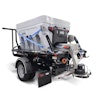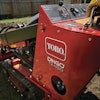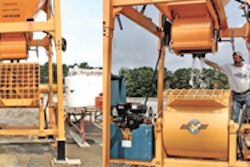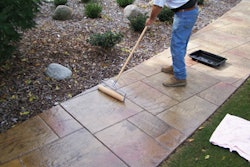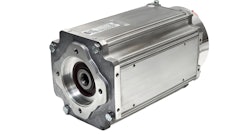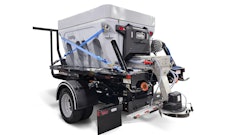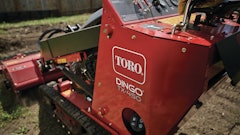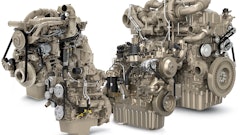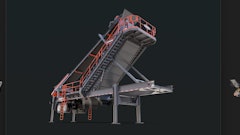
Louisiana contractors are watching with a skeptical eye as California gets ready to impose a new set of rules in 2010 that will require construction companies to phase out or retrofit most of their heavy equipment.
The law, which governs greenhouse gas emissions, calls for the phased overhaul of almost all off-road diesel vehicles, which accounted for 24 percent of statewide particle matter emissions and 19 percent of nitrogen oxide emissions in 2007, according to California's Air Resource Board.
Ken Naquin, CEO of the Louisiana Associated General Contractors, said stricter emissions regulations have not yet been a factor in Louisiana but are likely to take hold at some point in the near future.
While he isn't necessarily against higher emissions standards, he said the drastic measures California is proposing would be devastating to the construction industry if they were implemented in Louisiana.
"They could require that equipment over a certain age be taken out of circulation even though it is still operating. Equipment is also a major part of a contractor's property and assets that they base their bonding capacity on. If you take that out, you're severely limiting it," said Naquin.
Contractors either own or lease their equipment, and many do a combination of both. Ben Tucker, equipment director for Barriere Construction Co., oversees a $23 million fleet that includes everything from $200,000 excavators to $450,000 loaders and paving machines.
Tucker anticipates stricter emission standards but feels Barriere is ahead of the curve because it already takes strong measures to improve fleet efficiency. In 2004 and 2008, the company won the Fleet Masters Award from the Association of Equipment Management Professionals and has been noted for its use of global positioning systems to monitor efficiency and machine idle time and work time.
"Where I see it starting is that you'll have to monitor your fuel intake and how efficient you are. I don't know where that is going to stand with (coming emission standards), but I feel it won't be a grave concern to us," Tucker said.
California's new rules come at a time when some Louisiana lawmakers are expressing interest in cutting diesel emissions. But contractors here may still have time before any changes come their way.
According to the AGC of America, as many as 32 states, excluding Louisiana, are closely following California's effort to implement and enforce first-time emission limits for in-use fleets of off-road diesel equipment.
These rules would essentially require construction companies to pay the costs of installing after-market pollution controls on equipment in the field or either replacing and retiring that existing equipment, although California is offering grant money to help pay for the upgrades.
So far, 17 states have adopted one or more of California's strict emissions standards.
Doug Reisser of Wolfe Law Group, a New Orleans law firm specializing in the construction industry, said that when broken down on a per capita basis, Louisiana has one of the biggest emissions problems in the country. In 2007, the state had the ninth-highest level of carbon emissions from fossil fuels nationwide, according to the Environmental Protection Agency.
Reisser said that while any standards Louisiana implements are unlikely to be as strict as those in California, equipment rental companies that are not prepared will likely go under if they can't find a way to preempt the measures or obtain enough money to retrofit their equipment.
"If you have a company that owns 50 pieces of equipment and they have to retrofit their entire yard without any subsidy to do so, they are going to go under because there is just no way to do it," Reisser said.
As to what emissions control requirements might look like, Reisser said he could only speculate but said contractors who work on public works projects will likely have to go through equipment checks.
For general contractors to even bid on jobs, they will also have to submit documentation on equipment for subcontractors as well to prove that all machinery meets the standards. But for any such regulations to work, Reisser said it won't be possible without incentives or subsidy programs to retrofit or replace old equipment.
The EPA recently developed Clean Construction USA, a program to assist owners and operators of construction equipment in reducing emissions from the older engines in operation today. The program points to regional and state funding such as the Texas Emissions Reduction Plan and the Oregon Clean Diesel Initiative.
But in many states, experts say the funding is unlikely to fill the financial gaps to keep contractors in the black.
Naquin said the LAGC was one of the only groups in Louisiana to apply for an EPA grant to retrofit 240 pieces of equipment for 11 contractors in the state but was denied the funding.
Naquin said he hopes that the construction industry will not be singled out and forced to bear the brunt of any new emissions legislation.
"They should look at the transit buses, school bus fleets, farm equipment and freight vehicles," Naquin said. "They have all but shut down the highway construction industry in California, when they have another entire aspect of diesel emissions that they haven't even addressed. "

